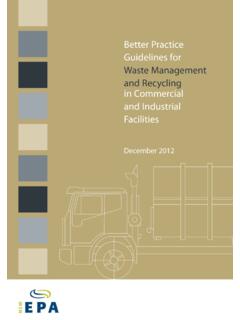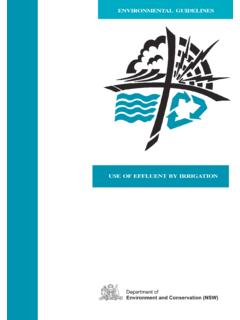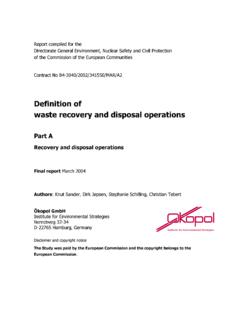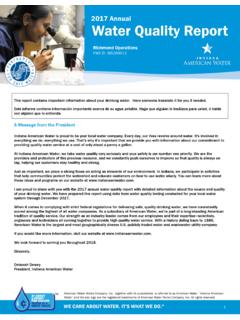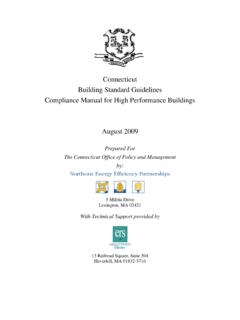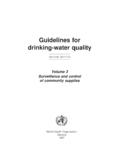Transcription of Environmental Action for Service Stations
1 Service stAtionsENvIRoNmENTAl Action foRAcknowledgmentsThis information for Service Stations was prepared by the Department of Environment and Climate Change NSW (DECC), which incorporates the NSW Environmental Protection acknowledges the help of the following organisations in completing this guide: Institute of Automotive Mechanical Engineers Motor Vehicle Repair Industry Authority Service station Association Shell Australia BP Australia Penrith Council Warringah Council Automotive Training Board Kempsey Council Camden Council Motor Traders Association Rapid Spill Control EnvirotankPlease note:This guide provides information relevant at the time of publication. It is not a regulatory document and does not provide legal advice. If you need more information regarding legal obligations, consult a lawyer, the legislation, DECC or your local reasonable efforts have been made to ensure the contents of this guide are factually correct, DECC does not accept responsibility for the accuracy or completeness of the contents and is not liable for any loss or damage that may occur directly or indirectly through the use of, or reliance on, the contents of this has changed to Department of Water and by:Department of Environment and Climate Change NSW59 61 Goulburn StreetPO Box A290 Sydney South 1232Ph: (02) 9995 5000 (switchboard)Ph: 131 555 (environment information and publications requests)Ph: 1300 361 967 (national parks information and publications requests)Fax: (02) 9995 5999 TTY: (02) 9211 4723 Email.
2 Is pleased to allow this material to be reproduced in whole or in part, provided the meaning is unchanged and the source is 2008/552 ISBN 978 1 74232 010 6 First published February 2007. Reprinted October 2008 with on Recycled paper (elemental chlorine free).1 Environmental Action foR Service STATIoNScontentsPriority actions for Service Stations 2overview and opportunities 4 Information sheet 1: 8 Environmental compliance meeting your legal responsibilitiesInformation sheet 2: 14 Resource efficiencyInformation sheet 3: 18forecourt design, maintenance and operationInformation sheet 4: 22fuel deliveriesInformation sheet 5: 26 Emergency fuel spillsInformation sheet 6: 28 Underground fuel tanksInformation sheet 7: 32 Workshop containing, handling and disposing of oil and chemicals Information sheet 8: 38 Workshop washing and degreasingInformation sheet 9: 42 Workshop waste, noise and dustInformation sheet 10: 44 Around the shopfront Information sheet 11: 48 Bringing it all together planning UseFUL tooLsself-assessment checklist 50environmental Action plan 61checklists.
3 Daily and weekly 64 Useful contacts 65 EPA Environment Protection Authority part of the Department of Environment and Climate Change NSWDECC Department of Environment and Climate Change NSWMSDS Material Safety Data Sheet/soH&S occupational Health and SafetyPoEo Act Protection of the Environment Operations Act 1997voCs volatile organic compoundsABBReVIAtIons ActIonsfor Service Stations Prevent fuel spills: look at work practices, staff training, equipment and storage Develop emergency response procedures for dealing with spills Train staff to prevent and handle fuel spills Keep spill clean-up materials in a handy place clearly labelled and ready for use 3. emergency fuel spills Use vapour recovery equipment and techniques to avoid air pollution and minimise fuel loss make sure fuel is delivered in the forecourt containment area, and can t contaminate stormwater or land Train fuel area staff in vapour recovery procedures 2. fuel deliveries Design your forecourt so it complies with Environmental legislation and prevents pollution make sure stormwater drains near your forecourt receive rainwater oNlY Treat oily water through an oil/water separator before it is drained to the sewer or collected by a licensed contractor Ensure all fuel nozzles function properly Keep your premises and equipment clean and well-maintained 1.
4 Forecourt design, mAintenAnce And operAtion3 Environmental Action foR Service STATIoNSRegularly monitor underground tanks and supply lines to detect leaks find out if you are legally required to decommission unused tanksConsider the installation of an automatic leak detection system Ensure new tanks and lines are double-walled and include a leak detection system 4. underground fuel tAnks 5. workshop Dispose of hazardous liquids lawfully and in a manner that won t damage the environment Avoid stockpiling old tyres and explore tyre recycling opportunities Talk to your local Council or waste contractor about recycling options Provide recycling bins for customers 6. wAste mAnAgementDo all mechanical work, such as degreasing engines, inside the workshop and make sure all spills are cleaned-up immediatelyStore bulk hazardous liquids such as oil, solvents and coolants in a bunded and covered area. make sure spills cannot escapeCheck that oil, brake fl uid, radiator fl uid etc.
5 Used in the workshop is stored in spill trays If you install, Service or decommission vehicle air conditioners, make sure you hold a Refrigerant Trading Authorisation minimise noise generated from the forecourt and guides for other business sectors are available through the DECC Environment Line on 131 555 or visit the DECC website Service station industryNSW has approximately 2600 Service Stations that sell 6000 megalitres of fuel a year, which equates to 6000 Olympic size swimming pools. Because they deliver, store and dispense fuel, Service Stations have unique Environmental impacts and requirements. many Service Stations also have convenience stores and automotive workshops that have additional Environmental impacts, all of which are addressed in this AnD oPPoRtUnItIes4 This guide is part of an Environment Action Series prepared by the Department of Environment and Climate Change NSW (DECC) to provide information for businesses on improving their Environmental Are the key Environmental issues?
6 Key Environmental issues for Service Stations are: Diesel and petrol spills Stormwater pollution Soil and groundwater contamination vapour recovery Greenhouse gas emissions from energy use5 Environmental Action foR Service STATIoNSwhAt is the purpose of this guide?This guide is designed to help operators of Service Stations in NSW: Understand the Environmental risks and responsibilities associated with the operation of Service Stations . Take Action to improve the Environmental management of their operations. Take advantage of the business benefits that result from improved Environmental guide provides information for owners, managers and staff. It will also be useful to Environmental officers employed by local government. The guide does not provide legal advice but will provide the reader with a good understanding of regulatory Useful tools section of the guide contains templates to help you develop your own Environmental management tools, such as checklists and an Action plan.
7 It also contains a Self-assessment checklist with the types of questions that an officer from your local Council or the EPA could ask when visiting your premises. You can use this self-assessment tool to evaluate the Environmental performance of your business and identify areas for improvement. occupAtionAl heAlth And sAfetymany of the issues addressed in this guide are also relevant to occupational health and safety (oH&S). In fact, many businesses with good OH&S procedures are also excellent performers with respect to the environment. This guide does not address OH&S issues in detail so it s important that you contact WorkCover NSW for more mAnAgement risks And opportunities for Service Stations , improving Environmental performance is about managing risk and taking advantage of opportunities that will boost efficiency and profits. A good starting point is to identify and prevent risks to your business from poor Environmental management.
8 A major fuel spill or other Environmental incident could pose the risk of: Environmental prosecutions and fines Harmful affects on the health, safety and productivity of staff Damage to company reputation. A leaking underground fuel tank could also harm the local environment, which belongs to all members of the community and impacts on their quality of life. Improving Environmental management also provides opportunities to make a business more profitable and viable in the long-term. Even small changes can save money. For example, many Service Stations have cut electricity costs by installing energy efficient lighting and regularly maintaining machinery such as air compressors. These simple improvements are often called resource efficiency , which is described in more detail in Information Sheet 2. The benefits of a high standard of Environmental management go beyond housekeeping and efficiency. They also include benefits from: An enhanced reputation as a company that is well-managed and a valuable long-term business partner.
9 Becoming a supplier of choice , particularly to corporate and government clients who are starting to consider Environmental performance of suppliers and products as part of their green procurement policies. Improved employee satisfaction, retention and productivity. Companies with a good Environmental record are more likely to win the battle for talent in attracting and retaining staff. As well, employees are generally happier and more productive in a workplace that is clean, healthy and environmentally responsible. 7 Environmental Action foR Service STATIoNSSuccessful Service Stations operators are coming to understand that good Environmental practice is a business opportunity. These opportunities are maximised when management of Environmental issues is integrated with other business planning and becomes part of continuous improvement. Better results are also likely when staff at all levels are involved in identifying and delivering Environmental projects.
10 For further information visit And opportunitiesfurther informAtion DECC Environment line phone 131 555 or WorkCover NSW phone: 13 10 50 or Your local Council Your industry associations: Service station Association phone (02) 9420 5599 or motor vehicle Repair Industry Authority phone (02) 9712 2200 or Motor Traders Association of NSW phone (02) 9213 4222 or Institute of Automotive mechanical Engineers phone (02) 9648 1412 or sheet Protection of the Environment Operations Act 1997 (POEO Act) is the main piece of NSW Environmental legislation covering water, land, air and noise pollution and waste some cases breaking Environmental law carries serious penalties. If you break the law and end up in court, the prosecutor may not have to prove that you intended to cause the damage or pollution. Even accidents can result in prosecution and penalties. Everyone involved in your business (including owners, managers, supervisors, operators, contractors and subcontractors) needs to be aware of Environmental laws that apply to your operations.

